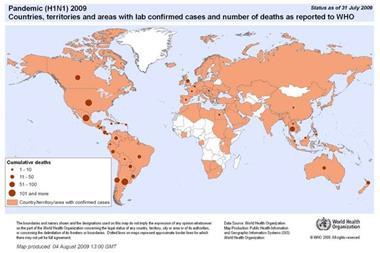Aesop’s Fables should be mandatory reading for risk managers
Aesop’s Fables – a volume that I think should be mandatory reading for risk managers and their bosses – includes some salutary tales. I’ve picked on the one about the little boy who cried wolf a couple of times (to gain attention) and then failed to get the villagers’ attention when the wolf had actually arrived – with disastrous results.
The world has been waiting for a pandemic. The ‘experts’ say that such a pandemic is inevitable – and I would like to think that all risk managers have made the appropriate contingency plans. However, we have to beware of governments and international associations crying wolf.
The recent swine flu ‘epidemic’ is a case in point. Emerging out of Mexico, swine flu was heralded as a potential pandemic. Governments took action, spending a lot of money despite their countries’ hard pressed circumstances in the face of today’s recession, to disseminate information and advice. The World Health Organisation (WHO) added to the panic by shooting swine flu up its numbered alert level scale.
Risk managers reacted. One, whose company has subsidiaries in Mexico, told me that they barred their Mexican executives from travelling to meetings outside the country. He said that the company could not risk the potential liability claims that would arise if it was involved in the spread of the disease and also took chances with other employees’ health.
And all this is great news. Everyone reacted exactly as they should have done in the face of a possible major pandemic. But there wasn’t a major problem. The alleged fatality statistics connected to swine flu issued by Mexico were scaled down significantly. The villagers went back to their huts!
There is a risk in being too quick to think that there is a risk. We all know that a pandemic is on the cards and companies have to be prepared. But I think that those companies should also be able to look to governments and the WHO to dig into the details faster than they did with swine flu so that they can provide guidance on a measured response and not waste corporate time and money on over-reacting.
False alarms are very dangerous. We’ve all seen the concerns that were raised about the possible spread of avian flu. Now we’ve had the swine flu alert. Neither of these potential ‘epidemics’ has materialised so far. Will companies be so quick to react when the next alarm arises – or the next?
With the potential severity of a true pandemic, I think that companies globally should lobby for a fast check system that can provide real information on how virulent the next virus is.
Postscript
Sue Copeman
Editor, StrategicRISK



















